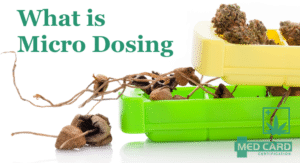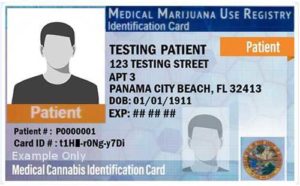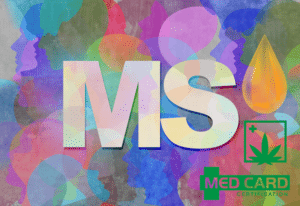The increasing popularity of medical marijuana has made many researchers and consumers to create a link between cannabidiol (CBD) and psychosis. New studies have debunked earlier studies that the chronic consumption of marijuana could lead to psychiatric disorders, in a condition known as cannabis-induced psychosis (CIP). New studies have instead indicated that CBD, which is one of the major compounds found in medical marijuana have powerful anti-psychotic properties.
For us to effectively understand the anti-psychotic functions of the CBD, we must first of all have a clear understanding of what psychosis is. Psychosis is a mental condition in which sufferers tend to lose touch of reality to the extent that they start seeing, hearing as well as believing things that are not real. People with psychosis usually have delusions, implying that they hold on to untrue or strange beliefs. Most often, people suffering from psychosis also have bouts of hallucinations, which makes it possible for them to imagine or hear something that does not actually exist.
It is worthy to note that psychosis is merely a symptom and not a disease on its own. The condition is typically caused by mental or physical abuse, substance abuse, extreme stress as well as trauma. Even though psychosis is more common in older people, young people can also develop it and that explains why doctors have not fully understood this condition.
People with psychosis often have a difficult time getting through the day since it is associated with other problems such as depression, anxiety as well as sleep disorders. Typically, there are warning signs leading to psychosis and for most people, they often start acting differently. For instance, some people could start isolating themselves from others, meanwhile other individuals could start performing poorly at work or in school. Psychosis is normally treated with anti-psychotic drugs and sometimes, doctors may recommend Coordinated Specialty Care (CSC).
The evidences of the anti-psychotic properties of CBD, have made many researchers, clinicians and consumers to explore it as an alternative treatment of psychosis. As early as 1982, a study was carried out on the antipsychotic effects of cannabidiol. The findings of this study revealed that THC binds incredibly well with the CB1 receptors within the endocannabinoid system of the body whereas CBD does not. As a matter of fact, detailed findings revealed that THC activates CB1 receptors by mimicking anandamide, while CBD prevents THC from acting in this way. This assertion simply implies that the CB1 receptor is not suppressed but rather, it instead regulates the effect of the THC. Thus, based on the findings of this study, it can be argued that CBD behaves, in pre-clinical and clinical studies, as a powerful anti-psychotic that can improve psychotic symptoms greatly without altering motor functions.
According to a study that was conducted by researchers at King’s College London and published in the journal JAMA Psychiatry, CBD is a powerful anti-psychotic. This study was carried out on 33 individuals at high clinical risk of psychosis and 19 healthy control individuals. The findings from this study indicated that the administration of a single dose of cannabidiol (CBD), could help reduce psychotic symptoms. Of course, the findings of this study could lead to a rise of a new drug to replace the traditional drugs like Thorazine and Haldol, which have serious side effects even though they are effective in the treatment of psychosis.
During the study at King’s College London, 16 participants received a single oral dose of 600 mg of CBD whereas the other 17 received a placebo. The control participants on the other hand were not administered any drug. The researchers also used a functional magnetic resonance imaging (FMRI) to study all the participants, while simultaneously performing a verbal learning task that engaged all the three regions of the brain that have been proven to be involved in psychosis. The results from this study indicated that the participants who had received CBD had less severe abnormal brain activity as compared to those who received placebo. Besides, CBD was not associated with significant adverse side effects. Thus, based on the results, the scientists concluded that CBD can help restore brain activity to normal levels, without serious adverse side effects.
According to another study that was published in PMC in 2016, CBD treatments ameliorated social interaction behavior and cognition in rodents and rhesus monkeys. The authors of this study never also failed to report the fact that CBD had less side effects when compared to other traditional medications for the treatment of psychosis. Of course, there is also a need for more clinical evidence to not only substantiate the current findings, but to equally investigate the long term efficacy as well as safety in larger cohorts.
Sources:
How To Get CBD (Cannabidiol) Products
If you are interested in trying CBD to treat medical conditions, for general wellness, or for your pets, checkout CBDbay.app














